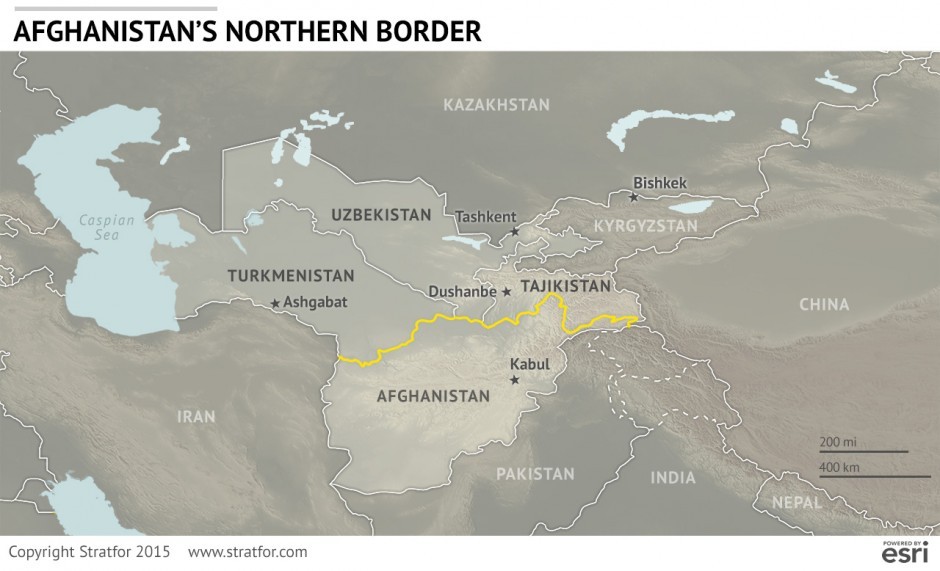WASHINGTON (TCA) — Fears of a ‘spillover’ of extremists from Northern Afghanistan into the states of Central Asia is nothing new. These claims have been echoed by Russia and the leaders of Central Asia for years; however there is little evidence to suggest genuine concern. For the Central Asian elite, this claim attracts foreign aid from wealthy states, while allowing regimes to squash both religious and secular dissent. The late ruler of Uzbekistan, Islam Karimov, used this very tactic to eliminate threats to his regime in the early 2000s by coordinating with the United States to extinguish Islamists. The Central Asian elite commonly use their security apparatus against political dissenters, and Karimov jailed hundreds of opponents under the disguise of counterterror.
For Vladimir Putin, inciting fear of a spillover to Central Asia provides justification for re-establishing dominance in its periphery. All Central Asian domestic and international policies are formed within the framework of preserving regime stability, and Russia plays on this structure. Russian rhetoric highlights the Pentagon’s failure to bring security to Afghanistan, convincing the Central Asian elite that only Russia can offer stability to the regime. By inciting fears of a major threat of extremism from Afghanistan, Russia sells the idea that a safe haven can be offered in the case of a real threat to regime security — something the United States cannot offer.
Prior to the inception of ISIS in Afghanistan, Russia provoked alarm that Taliban militants in northern Afghanistan could move towards Central Asia to wage jihad. The notion that Taliban militants would spread its insurgency to Central Asia demonstrates the lack of understanding of the Taliban’s goals, which focus on liberating Afghanistan from foreign powers. ISIS in Afghanistan, however, adheres to the global salafi-jihadist ideology which promotes insurgency across borders. Furthermore, ISIS in Afghanistan has a direct connection to Central Asia, as fighters once loyal to the Islamic Movement of Uzbekistan have joined ISIS ranks in Afghanistan.
Central Asian radicals have not sought to wage jihad in their home countries since their expulsion to Afghanistan in the early 2000s, and the region continues to be an exporter of radicals. Well established drug smuggling routes along the Tajik-Afghan border, and the porous boundaries of the Ferghana Valley allow insurgents who wish to cross borders to do so. The absence of jihad in Central Asia indicates that terror groups view failed states such as Afghanistan, Iraq, and Syria as better investments to plant and grow their insurgencies.
The Kremlin sees much more in Central Asia than simply controlling the elite, and by spreading false fears of Afghan threats to its periphery it can further wield its influence abroad. These fears have resulted in an increased Russian military presence in Central Asia. Kyrgyz President Almazbek Atambayev asked Russia to open a second military base in Kyrgyzstan, while Russia has expanded its military cooperation with Tajikistan near the Afghan border.
Russia’s military presence in Central Asia may be an attempt to counterbalance Chinese influence in the region, as Beijing has slowly but effectively inserted itself as a regional power broker in Central Asia. Moreover, Russia has increased its anti-Western rhetoric in Afghanistan by meeting with several Afghan officials both in Kabul and in Moscow. Former Afghan President Hamid Karzai has touted anti-Washington and pro-Kremlin sentiment as of late, and Russia may be using their expressed fears of ISIS in Afghanistan as a way to insert itself as a player in Afghanistan. If the Kremlin continues to promote anti-Western rhetoric in Central and South Asia, Afghanistan could very well be the next theater for a Russo-American rivalry.
The opinions expressed in this article are those of the author and do not necessarily reflect the opinion of The Times of Central Asia

